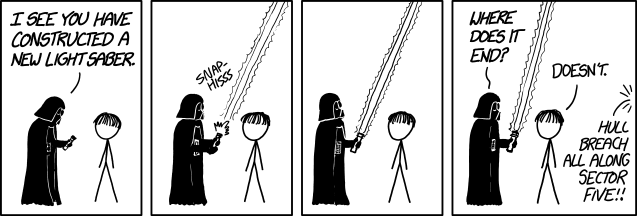I noticed (somewhat) recently that there are a number of movies that have one word titles,yet seem to convey more of an idea than a specific item. Here’s a list of what I’ve found so far:
Adjectives:
- Epic
- Frozen
- Up
- Brave
- Enchanted
- Tangled
- Divergent
- Taken
Ideas:
Note: when considering if a movie falls under this category, proper nouns (like Rio or Hercules) don’t count; in fact, if it isn’t an idea or an adjective, it doesn’t count (Planes and (The?) Incredibles don’t count because they are things, not ideas) . Also, must be rated PG-13 or lower to be on this list.
I find it quite interesting how much more the title can mean if you think about it. Frozen, for example, can mean the obvious reference of everything being ice, or a reference to a frozen heart (which could mean Anna (literally), Elsa (lack of emotions), or Hans (cruel)), or maybe even frozen in time, which the castle might as well have been for so many years.
Epic is harder; there is no obvious reference so I looked up the the word. Epic can mean “grand in scale,” and how Epic would our normal world seem to the M.K. after she was shrunk to the size of a mouse?! Then there is how Epic the fight for the forest is, that only once every 100 years can an heir be chosen, allowing the forest to continue. Then there is the definition meaning “a long poem, typically one derived from ancient oral tradition, narrating the deeds and adventures of heroic or legendary figures or the history of a nation.” This movie gives you a sense of the history of the Leafmen and the forest, and that if only someone would write their story it would be an Epic.
(Yes, I know I’m probably over analyzing the titles, but it’s fun, so I’ll continue)
Up: Obvious reference = way too many balloons, house in the sky, you know it already. But it can also be a reference to how Russell (the boy scout) wakes Carl Fredricksen (the old man) “up” from his tired life, cheers him “up” from his dreariness, never gives “up” on him, and, in the end, looks “up” to him as a father figure. I like the title much more now than I did a few minutes ago.
(I’ll skip Brave and Enchanted for now, because it’s been forever since I’ve seen them. I’ll also skip Taken and Divergent because I haven’t seen them yet)
Tangled: Yes, she has long hair that probably gets “tangled” all the time (although you don’t see it in the movie). This clearly fits the definition of “twisted together untidily”. But so does so many of the relationships in the movie: Rapunzel (that took me forever to spell right) and her “mother” don’t fit together so well, and you can sort of imagine the “mother” twisting her way into Rapunzel’s life, although she does keep the relationship pretty tidy; a better example would be Flynn Rider and the horse, who never wanted to be with each other, yet were thrown together against their will; and then there was Flynn and Rapunzel, whose emotions are so “tangled” that they don’t know what to do with each other. Tangled can also mean “complicated and confused; chaotic”, if you want to think about that.
Inception (my favorite movie along with The Dark Knight): It turns out that Inception is a noun, unlike the others on this list (which are, at this point, all adjectives), but it’s sort of an idea, so I think that it still will work. Inception is “the establishment or starting point of an institution or activity”. The movie is about the inception of an idea. There are, however, a few starting points. The start of the the inception process (lol, the starting point of establishing…) is a critical part of the film. You wonder, “Will Cobb risk everything for this?” It also has the start of Adriane’s ventures into the mind, which she will definitely do more of in the future. And, ultimately, the movie is about the beginning of the end of Cobb’s exile from the U.S. and his children, who he desperately hoping to see again.
That was fun; if you see any new movies that fit the conditions, feel free to comment on them!
~ George


